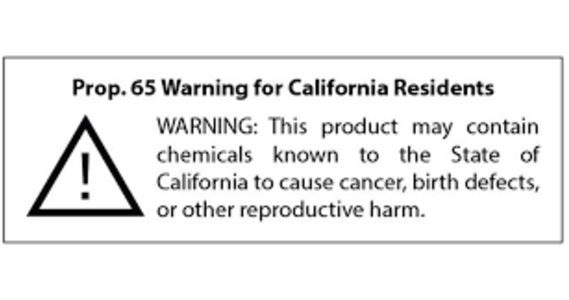On March 17, 2015, the California Appellate Courts issued the most significant ruling in the history of Prop 65. We distill its essence to three paragraphs below.
Background: California Prop 65 requires foods and other products containing certain chemicals to be labeled Warning: This product contains a chemical known to the State of California to cause cancer, birth defects and other reproductive harm. Companies violating Prop 65 are subject to fines of up to $2,500 per day plus payment of opposing party’s attorneys fees. The law provides “safe harbor” levels for some Prop 65 chemicals. If the product exposes consumers to less than the “safe harbor” amount of the chemical, the product is said to be “within the safe harbor” and no warning is required. A safe harbor for lead, for example, is 0.5 micrograms per day. Courts have universally interpreted this to mean that if consumers normally eat enough of the product to take in more than 0.5 micrograms of lead in any single day, Prop 65 applies and the warning (in red, above) is required. This is true even if the product is eaten only once or twice per month.
The New Issue: When Beech Nut, Gerber and others were sued under Prop 65 for excessive lead in their juice products, they contended that the amount of lead eaten in a single day is irrelevant under Prop 65. What matters, they said, is how much of the lead makes its way into the consumer’s bloodstream because that is what causes the harm that Prop 65 seeks to prevent. The Ruling: On March 17, 2015, the Appellate Court agreed with Beech Nut, Gerber and food industry groups who filed briefs supporting their position. The Court ruled that the proper measure of lead for purposes of determining safe harbor compliance is the amount in consumers’ blood averaged over a period of 14 to 30 days. This “average lead blood level,” is affected by how much a person eats of the product at a single sitting and how often they eat it. The vast majority of food products are not eaten every day and a single serving is seldom enough to spike the average blood level to outside safe harbor levels. The Court’s ruling is a huge benefit to the food industry because it requires much more food to be eaten before a warning must be put on the product label. We will e-mail you the official Court Opinion upon request.
The Food Lawyers® Take Aways: Prop 65 applies only to goods sold in California. The Court’s ruling makes it easier for food companies to comply with Prop 65 by focusing on what really matters – – the quantity and frequency with which food is eaten. If your food product isn’t eaten every day (which is almost always the case), your Prop 65 compliance just got easier. The Court’s ruling applies to all Prop 65 chemicals, not just lead. Companies that have voluntarily put Prop 65 warnings on their products, or are considering doing so, should reexamine their situation. Those that put warnings on packaging under a court approved Prop 65 settlement should evaluate making a motion to the court to reopen the matter. Both strategies require consultation with technical experts to calculate blood absorption levels and legal counsel to guard against missteps that can thwart efforts to take advantage of the new tool the Court has handed to food companies doing business in California.

